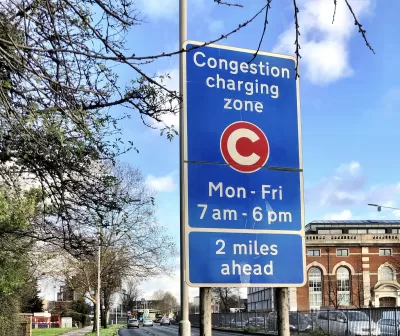Writing from London in an Op-Ed for Seattle’s Crosscut, Chuck Wolfe argues for a contextual approach to a much-touted search for transportation equity.

In cities like Seattle, advocates of congestion pricing—tolling those who drive into a designated downtown city zone—often point to London and Stockholm, two cities with robust transportation infrastructure, where the concept was initially unpopular, but now is an accepted fact of life.
In the face of Seattle’s ongoing consideration of congestion pricing tools, Wolfe wonders how this reasoning applies to Seattle and the Puget Sound region in 2019. He suggests greater similarity between Seattle and other cities where congestion pricing is currently on hold.
Now living and working in London and Stockholm, Wolfe counsels against summary comparisons. He contends that implementation of congestion pricing needs to make sense for Seattle, its particular geography, demography, transit service and public access issues, as well as work equitably for city and regional residents: "In Seattle, the deeper issue is how to align policy with local realities, without prematurely borrowing practices from elsewhere along the way."
FULL STORY: What London and Stockholm can teach Seattle about congestion pricing

Maui's Vacation Rental Debate Turns Ugly
Verbal attacks, misinformation campaigns and fistfights plague a high-stakes debate to convert thousands of vacation rentals into long-term housing.

Planetizen Federal Action Tracker
A weekly monitor of how Trump’s orders and actions are impacting planners and planning in America.

In Urban Planning, AI Prompting Could be the New Design Thinking
Creativity has long been key to great urban design. What if we see AI as our new creative partner?

King County Supportive Housing Program Offers Hope for Unhoused Residents
The county is taking a ‘Housing First’ approach that prioritizes getting people into housing, then offering wraparound supportive services.

Researchers Use AI to Get Clearer Picture of US Housing
Analysts are using artificial intelligence to supercharge their research by allowing them to comb through data faster. Though these AI tools can be error prone, they save time and housing researchers are optimistic about the future.

Making Shared Micromobility More Inclusive
Cities and shared mobility system operators can do more to include people with disabilities in planning and operations, per a new report.
Urban Design for Planners 1: Software Tools
This six-course series explores essential urban design concepts using open source software and equips planners with the tools they need to participate fully in the urban design process.
Planning for Universal Design
Learn the tools for implementing Universal Design in planning regulations.
planning NEXT
Appalachian Highlands Housing Partners
Mpact (founded as Rail~Volution)
City of Camden Redevelopment Agency
City of Astoria
City of Portland
City of Laramie




























